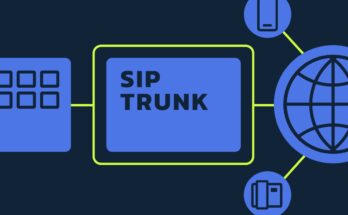Enterprise resource planning (ERP) software is a powerful tool that helps businesses automate and manage their operations. It is used to streamline business processes, integrate data and applications, and improve decision-making. ERP software can provide a single source of truth for all organizational data, allowing managers to make well-informed decisions that can lead to increased efficiency and profitability.
At its core, ERP software in Singapore automates everyday tasks such as order entry, inventory management, accounting and financial reporting. This allows for the efficient utilization of resources by reducing manual labor costs associated with keeping track of information. Additionally, ERP systems often come with built-in analytics capabilities which allow users access to real-time intelligence about their business operations from anywhere in the world. This helps managers stay informed on their organization’s performance at any given moment in time so they can make timely decisions based on current trends and conditions.
ERP systems are also designed to facilitate collaboration between departments within an organization by providing them with access to the same shared data sources so that everyone is working from the same set of facts when making decisions or completing tasks. This streamlines communication between departments while also reducing errors due to miscommunication or lack of communication altogether among teams who are not familiar with each other.
Benefits of ERP Software
As businesses continue to grow, the need for an efficient and reliable enterprise resource planning (ERP) system is essential. ERP software is a type of business management software that helps organizations manage their resources more effectively. It provides a comprehensive view of all activities within an organization, allowing it to make decisions and take action quickly and efficiently.
One of the primary benefits of using ERP software is improved efficiency and cost savings. With an ERP system in place, companies can streamline their processes by providing access to real-time information from multiple sources. This allows for faster decision-making as well as reduced errors due to manual errors or lack of data accuracy. Additionally, with fewer redundant processes, businesses can reduce their spending on unnecessary labour costs or other expenses associated with inefficient operations.
Another benefit of using ERP software is improved customer service levels through increased visibility into customer orders and inventory status. With better tracking capabilities, companies can provide customers with accurate order statuses while also making sure they receive the products they’ve ordered in a timely manner. This helps create a better overall shopping experience which leads to higher customer satisfaction rates and repeat purchases from those same customers in the future.
Common Features in ERP Software
The ever-evolving and changing business landscape have made it increasingly important for companies to effectively manage their operations. Enterprise resource planning (ERP) software has become an invaluable tool for businesses seeking to stay ahead of the competition. ERP solutions provide a comprehensive set of integrated tools that allow organizations to streamline and automate key processes, from financial management to supply chain management. While there are many different types of ERP solutions available, they all share certain common features that make them essential for today’s businesses.
One of the most important features found in most ERP systems is comprehensive financial management capabilities. These include the ability to quickly and accurately generate financial reports, track expenses, process invoices and payments, manage payrolls and taxes, and develop targeted budgeting strategies. By integrating all these functions into a single platform, companies can gain greater visibility into their finances while reducing manual tasks associated with data entry or report generation.
ERP systems also typically come with powerful customer relationship management (CRM) modules that enable companies to better understand their customers’ needs and preferences while delivering more personalized services. With CRM functionality in place, organizations can easily track customer interactions across multiple channels including phone calls, emails, social media posts or even face-to-face interactions.
Challenges of Implementing ERP Software
In recent years, businesses of all sizes have begun to embrace Enterprise Resource Planning (ERP) software. ERP software is a set of integrated applications that automate and streamline core business processes, such as accounting, inventory management, customer relationship management (CRM), and more. By replacing manual processes with automated ones, businesses can save time and money while becoming more efficient. However, implementing an ERP system is not without its challenges.
One of the biggest challenges when implementing an ERP system is getting everyone in the organization to buy into it. This means convincing executives and stakeholders that it’s worth the investment—both financially and in terms of employee training—as well as getting employees on board with learning how to use the new technology. It’s important to ensure that everyone understands the benefits of using an ERP system before moving forward with implementation.
Another challenge with implementing ERP software is ensuring it meets all applicable compliance regulations for your industry or region. Different countries may have their own laws governing data storage or data protection; therefore, you need to make sure your chosen solution works within those regulations or risk hefty fines or other penalties from government agencies.
Conclusion
ERP software is beneficial for businesses of any size, as it helps to streamline processes and improve data accuracy. It can also reduce operational costs and increase efficiency. By investing in an ERP system, businesses can save time and money while improving their overall performance.




